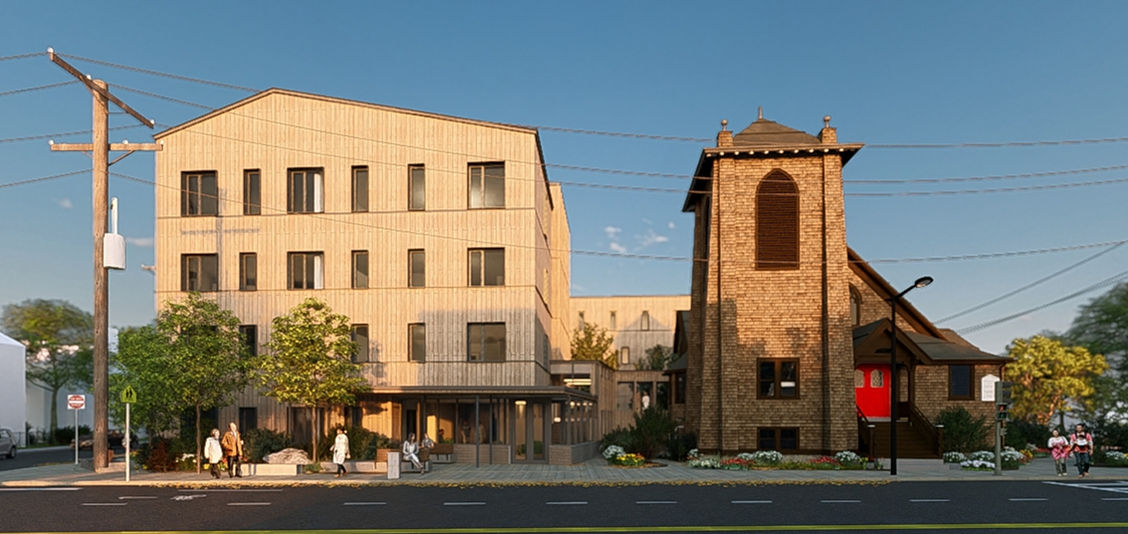process
THE CONCEPT
IS OUR COMPASS.

We guide our design process - we set our design compass - through the establishment of a foundational Design Concept for each project.
The concept is discovered through research and analysis; it is formed through iteration and collaboration among our team and with our clients; it is the product of our creative talents and is informed by our professional expertise and experience.
The concept serves as a central principle that guides the evolution of a project's design, and provides each project with clarity and cohesion.
The RODE Way
At the heart of our process is creative exploration. Guided by the concept, and using the tools of our expertise, we explore together, share ideas, give and get feedback, reconsider, iterate and — somewhere along the way — lightning strikes.
Our singular focus is to find the design solution that is right for the client, right for the space, and right for the community. That moment of inspiration is the spark that keeps our love for design alive, and it permeates our work.


What separates us from other firms is how fundamental the designer-client relationship is to our design work, and how deeply we involve our clients in our process.
When our clients have passion and drive, it is easy to collaborate and work towards an exciting design solution. As much as they need our expertise, we need theirs. We need to understand their dream, to know what they're hoping for, what they're afraid of, and what success feels like to them.
Amazing Spaces
Uplifting Communities
Social Interactoins
Amazing Spaces
Amazing Spaces
Uplifting Communities
Social Interactoins
Amazing Spaces
We create striking space that is conceptually clear, well-crafted and attuned to the environment and its community. The evidence of this lies in the organizations, communities, and populations that thrive in the places we helped to shape.
RODE delivers at every phase of design; we are community engagers, detailed technicians, experienced coordinators, and nimble partners in construction; whatever it takes to realize the shared vision.

Perspectives
Perspectives
Two neighborhood projects secure Board Approval
RODE won approvals for two projects at the Boston Planning Department's November Board hearing. These two projects exemplify RODE's approach to community-based design, with program, form, and siting that give back to their respective neighborhoods, and expand and enhance the public realm.

279 North Harvard is a partnership with the Allston Brighton CDC and McNamara House that will bring 49 units of affordable elderly housing to the Brighton neighborhood, The project anchors itself around the revitalized Hill Memorial Baptist Church structure, in support of the humane, joyful long term housing of elderly residents.


49 D Street, in the growth corridor along Dot Ave in South Boston, presents a striking, resilient, contemporary design that deftly contends with constrained site conditions. The building form is sculpted to carve space for a pocket park, which connects to a new ground level retail space.
70 units of new housing - including 12 units designated as affordable - will enjoy expansive views of the city, and benefit from Passive House design principles.


How an Architect Can Help Craft your Hospitality Business Plan
In the competitive landscape of the hospitality industry, a well-crafted business plan can be the difference between success and stagnation. While architects are traditionally associated with designing physical spaces, they’re most effective when their role extends beyond aesthetics. Engaging an architect or interior designer early in your business planning process can yield a number of strategic advantages that transcend mere floor plans.
Originally published on High-Profile Monthly.
Brand Identity and Feasibility Studies
Architects possess a unique skill set that blends creative vision with practicality. When embarking on a new hospitality venture, they can contribute significantly to the development of your brand identity. By understanding your business goals, target market, and desired guest experience, architects can help cultivate your concept through spatial storytelling and thematic design elements. Whether it’s a boutique hotel, restaurant, or spa, they can infuse your space with unique characteristics that resonate with your target audience.
In addition, architects can conduct feasibility studies that assess the viability of your business plan – whether a new build or a renovation – from a design and construction standpoint. They can identify potential challenges early on, such as zoning regulations, building codes, and environmental considerations. This proactive approach mitigates risks and allows for adjustments to be made in the planning stages, saving time and money down the line.
Spatial Planning and Operational Efficiency
Efficient space utilization is crucial in the hospitality industry, where every square foot impacts revenue generation and guest experience. Architects are trained to optimize spatial layouts, ensuring that your space not only looks impressive but also operates seamlessly. From kitchen workflows to guest flow patterns, it’s vital to consider spatial planning to enhance operational efficiency and staff productivity.








